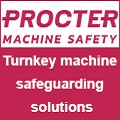
Posted to News on 5th Jan 2008, 20:06
How process control benefits from clustering
Paul Hurst, MD of Citect UK, explains what clustering is and how it benefits networks used for process control.
In any process control system there is requirement to strike a balance between the need for centralisation and the need for localisation. How best can the process control engineer centralise operations without raising network reliability risks or losing localised system functionality? How best to leverage the control system most effectively even while attempting to reduce redundant hardware costs?
Clustering is an answer to all these problems. Through clustering, process environments can reduce the high costs associated with multiple redundancies in hardware, while still ensuring server availability. When combining sites, the clustering approach reduces the cost of control rooms as well as the manpower at those centres without compromising on close-to-process system functionality. Clustering can also be used to split sites into reliable sub-clusters to increase overall system capacity or spread system load.
In a process control environment, clustering is combining multiple SCADA systems to provide a single unified operator interface. Organisations can cluster alarms, trends, reports or I/O tags such that multiple systems that were once monitored by multiple operators can now be viewed and monitored by one operator across those systems. Clustering achieves this by working on a process-basis rather than machine-basis.
A simple example that illustrates the benefits of Clustering is a process control environment with a number of production lines, each having a pair of servers (one primary and one standby). With clustering, one centralised server would act as standby for all production lines servers. This means clustering retains redundancy without the need for standby servers on each line or machine.
Combining sites and systems
The traditional application of clustering is in combining sites or systems. By creating a single unified list of alarms across systems and a single view of trends across systems, the operator is able to act on any incidents or exceptions across systems. The challenge here is when there are duplicate names for tags, trends or events across systems that need to be combined. That is when the degree of customisation increases.
Clustering can also be used to split a system or systems to create reliable sub-systems or sub-clusters maintained through a centralised set of servers. This approach could be used when the need is to increase overall system capacity, spread system load and still ensure that system functionality is close-to-process. What it also does is it raises reliability levels by guaranteeing access to alarms, trends, reports or tags at each site/location.
With a clustering approach, organisations also have the ability to utilise the same configuration for a project multiple times and have the configuration automatically duplicate for each cluster. This ensures simpler and faster scaling up of systems. It also means that once one project has been tested, duplication of this project ensures roll-out of any number of systems without having to test each of those duplicate systems. In terms of operator interface, this also means that the operator would then be able to see one display page on-screen driven by different clusters at different times based on the operator's command.
In all of these applications the key is for potential users to understand how best to quantify the potential benefits - not just from financial savings, but also from the hard-to-quantify benefits of improving centralisation without compromising localisation of process control.
Read more about CitectSCADA V7 with Clustering at www.citect.com.
Want the latest machine building news straight to your inbox? Become a MachineBuilding member for free today >>















